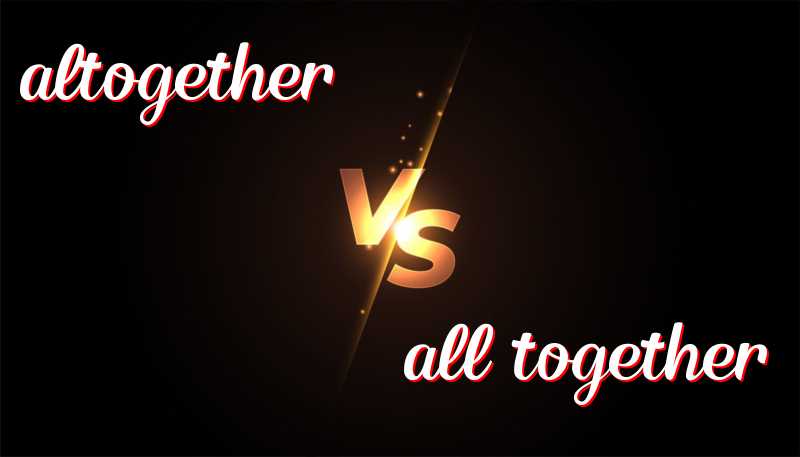The Difference Between Altogether and All Together
The Difference Between “Altogether” and “All Together”
Altogether and All Together are two phrases in English that sound similar but mean different things. Let’s break down the differences!
History:
1. Altogether comes from Old English and Middle English words meaning “entirely” or “all in all.”
2. All Together is made up of two common words “all” meaning everything and “together” being unified.
How to Use:
1. Altogether is used to mean “completely” or “in total.”
Examples:
– Altogether, there were ten people at the dinner party.
– She decided to quit her job altogether.
– The movie was altogether too long for young kids.
2. All Together means “in a group” or “simultaneously.”
Examples:
– Let’s sing the song all together.
– The team won the game because they played all together.
– The classmates worked all together on the project.
Trick to Remember the Difference:
If you’re unsure which to use, remember that altogether is used when talking about things being combined or considered as a whole, while all together refers to things being done collectively or as a group.
Summary:
– Altogether: Completely or entirely
– All Together: In a group or simultaneously
Remember, using the correct one can make your English writing clearer and more precise.

Leave a Reply
You must be logged in to post a comment.